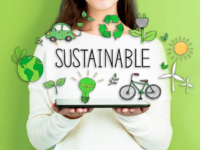 A wave of Silicon Valley-style disruption is hitting the food industry.
A wave of Silicon Valley-style disruption is hitting the food industry.
Lab-grown meat, vegan cheese, and “animal free” milk and eggs are headed for consumers, often with backing from the tech sector and its financial allies.
These products could fill an important need while reducing environmental problems such as energy and land use for traditional food industries, according to backers.
This new group of start ups is essentially hacking the food sector with new ideas and technologies, and with strong ties to Silicon Valley.
Some are using plant protein to substitute for animal products while others are producing foods biologically through “cellular agriculture”.
At least $US138 million ($A181 million) in investment poured into the segment of “sustainable protein” start-ups in 2014, research firm AgFunder says.
In 2013, Mark Post, a professor of tissue engineering at Netherlands-based Maastricht University presented the first lab-grown hamburger.
The product, backed by Google co-founder, Sergey Brin, was derided as a “Frankenburger” but nonetheless sparked interest in lab-produced foods.
San Francisco-based, Clara Foods, is using a similar in-vitro technique to produce “animal free” egg whites.
“These products are just as versatile as the real ones,” says Gilonne d’Origny of non-profit group New Harvest, which promotes cellular agriculture.
Among the prominent investors in this sector is Microsoft founder Bill Gates, who sees the industry as helping fight against a key environmental challenge.
“How can we make enough meat without destroying the planet?” Gates said on his blog.
Others are sceptical.
“The people who are doing these things are evidently not foodies,” Marion Nestle, professor of food studies at New York University, said.
“They eat to live but do not live to eat, apparently.”
AFP















